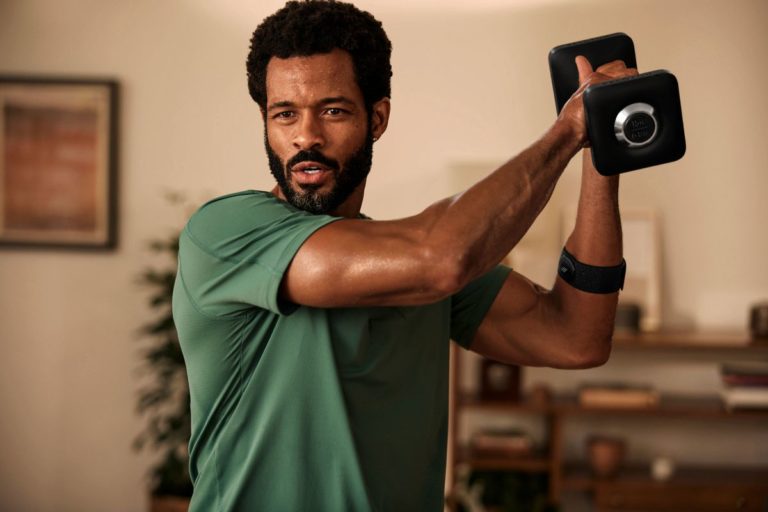Welcome to the Fitt Insider Weekly Debrief. Every weekend, we compile the top stories impacting the business of fitness and wellness from the past week.
Here’s what you need to know for November 7, 2021:
- Peloton’s stock crashes on earnings report
- Freeletics enters connected fitness
- Biolinq lands $100M to transform glucose monitoring
Join the team. We’re looking for an audio/video producer to help us take the Fitt Insider Podcast to the next level. Sound like you or know someone we should connect with? Let us know: insider@fitt.co
Peloton’s Pandemic Bubble Popped
Peloton was riding high, but a weak earnings report has them crashing back to earth. On Friday, the cycling giant shed $9B in market value.
Supply chain costs and sinking demand forced Peloton to scale back its FY2022 revenue forecast by up to $1B. Meanwhile, Planet Fitness’ latest quarterly revenue soared 46% year-over-year amid a sharp uptick in gym attendance.
But, between the doomsday narratives and the executives’ rosy outlook, the true picture lies somewhere in the middle.
Flat tires. In addition to broad environmental shocks and reopening headwinds, some of Peloton’s lowlights include:
- Lower-than-expected Bike sales despite decreasing the price by $400
- 12% connected fitness equipment margins, expected to sink even lower to 7% next quarter
- Continuously decreasing revenue and engagement on a quarterly basis, despite rising connected fitness subscriptions
- After doubling its workforce from the year prior, reaching 6,743 employees as of June 30, the company has swiftly instated a hiring freeze
Bird’s eye view. Peloton urges investors to evaluate the company on a two-year basis to smooth out COVID-induced havoc. Without ignoring the missteps, a broader view reveals nearly 100% two-year CAGR in both traffic and unit sales. Furthermore, leadership noted an increasing connected fitness market share lead, suggesting these woes aren’t unique to Peloton.
As the business transitions out of the COVID era, leadership has placed several strategic bets, including digital-only partnerships like that with Delta Airlines and shipping a lower-priced Tread in North America, Europe, and, soon, Australia.
CEO John Foley also plans to insource more production via Tonic and Precor, among other cost-saving measures.
Looking ahead, Foley promised to deliver on new products rumored to be launching, adding:
“We did say this year is going to be a big year for product launches. We stand by that… We are a technology and innovation company, and we’re going to show what that means in the coming quarters.”
Zooming out: It would have been nearly impossible for Peloton to sustain the pandemic boom. With that, this market correction was looming. Now, despite two dismal quarters, the company looks to prove this slow down was a short-term stumble.
For now, it remains to be seen where consumer behavior nets out between at-home and in-person, and the connected fitness wars have only just begun.
Strength Gaming
Fitness app maker Freeletics is launching at-home equipment with STÆDIUM — a connected strength training platform.
For context: Best known for its AI-powered exercise and coaching programs, the Munich, Germany-based company has raised more than $70M in funding, amassing 52M users.
What it is: Entering the connected fitness realm, Freeletics aims to “destroy boring” workouts with a strength-focused offering, including:
- Movement-tracking camera
- Adjustable dumbbells
- Bench/plyo box that doubles as storage
Beyond hardware, STÆDIUM’s monthly subscription features workout sessions, performance tracking, and challenges.
Game on. Combining two trends we’ve detailed extensively, connected strength training and game-based workouts, Freeletics is positioning STÆDIUM as a game-based workout that turns strength training into “strength gaming.”
Across the industry. Freeletics was hardly the only new fitness product to debut last week. The list of announcements included:
- MIRROR added connected dumbbells to its interactive workout screen.
- Tempo launched a smaller, screenless smart gym for only $400.
- Peloton partnered with Delta Airlines to offer in-flight content.
- Liteboxer unveiled a space-saving, wall-mounted boxing unit.
- Reform RX readied pre-orders for its connected Pilates reformer.
- Fiit and Assault Fitness teamed up for AirBike workouts.
- TrainerRoad introduced a machine learning-driven training platform for cyclists.
With Peloton’s big stumble, the timing of these unveilings couldn’t have come at a better time for challengers.
Biolinq’s Glucose Monitoring Patch
Medical device maker Biolinq secured $100M in funding to accelerate development of its wearable, noninvasive, glucose-monitoring patch.
Need to know: The company’s needle-free patch uses tiny biosensors to measure interstitial fluid glucose levels just under the surface of the skin. The device also features an integrated display for real-time feedback.
According to Biolinq, the coin-sized patch aims to simplify diabetes management and transform future consumer health and wellness applications, with CEO Rich Yang adding:
“We now have an opportunity to expand the sensing category and deliver a new generation of sensing capabilities that can reach millions of lives in the diabetes community and beyond.”
The business of glucose monitoring. As we detailed in Issue No. 142, America is facing a metabolic health crisis.
- In the US, the total economic cost of obesity is $1.72T per year.
- 40% of US adults are obese, and 100M Americans have diabetes/prediabetes.
- Diabetes-related medical costs and productivity loss will exceed $600B by 2030.
Offing a potential solution, glucose monitoring is going mainstream.
- Levels ($12M), GraphWare ($20.5M), Supersapiens ($13.5M), January AI ($8.8M), and Veri ($4M) have recently secured funding.
- Dexcom and Garmin partnered to display blood glucose on devices.
- Apple has long been rumored to be adding glucose tracking to its smartwatch.
Looking ahead: Like all new technology, continuous glucose monitors (CGMs) will encounter growing pains. But mirroring a broader trend in digital health—personalized, tailored approaches to care—diabetes tech may hold powerful health insights for a wider market.



